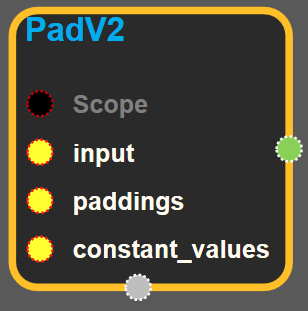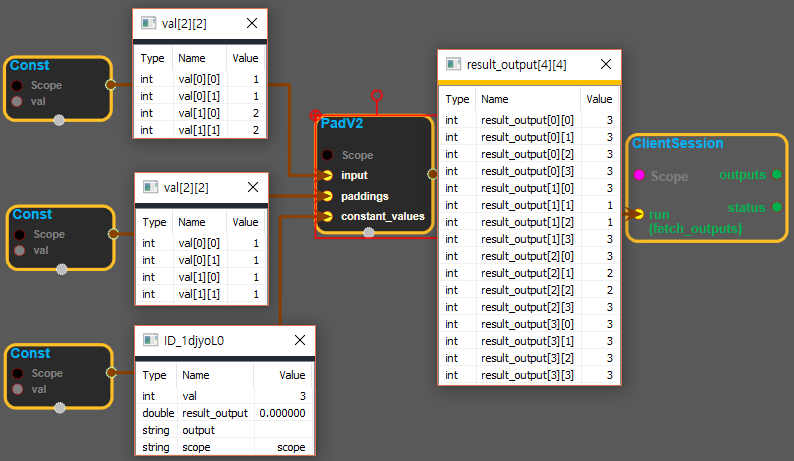PadV2
tensorflow C++ API
Pads a tensor.
Summary
This operation pads ainputwith zeros according to thepaddingsyou specify.paddingsis an integer tensor with shape[Dn, 2], where n is the rank ofinput. For each dimension D ofinput,paddings[D, 0]indicates how many zeros to add before the contents ofinputin that dimension, andpaddings[D, 1]indicates how many zeros to add after the contents ofinputin that dimension.
The padded size of each dimension D of the output is:
paddings(D, 0) + input.dim_size(D) + paddings(D, 1)
For example:
``` 't' is [[1, 1], [2, 2]]
'paddings' is [[1, 1], [2, 2]]
rank of 't' is 2
````pad(t, paddings) ==> [[0, 0, 0, 0, 0, 0][0, 0, 1, 1, 0, 0][0, 0, 2, 2, 0, 0] [0, 0, 0, 0, 0, 0]] ```````
Arguments:
- scope: A Scope object
Returns:
Output: The output tensor.
PadV2 block
Source link :https://github.com/EXPNUNI/enuSpaceTensorflow/blob/master/enuSpaceTensorflow/tf_array_ops.cpp

Argument:
- Scope scope : A Scope object (A scope is generated automatically each page. A scope is not connected.)
- Input
input: A tensor. - Input
paddings: is an integer tensor with shape[Dn, 2], where n is the rank ofinput - Input
constant_values: scalar value. The value to enter the padding area.
Output:
- Output y: Output object of PadV2 class object.
Result:
- std::vector(Tensor)
result_output_: _A Tensor . Pads a tensor fill withconstant_values.
Using Method
